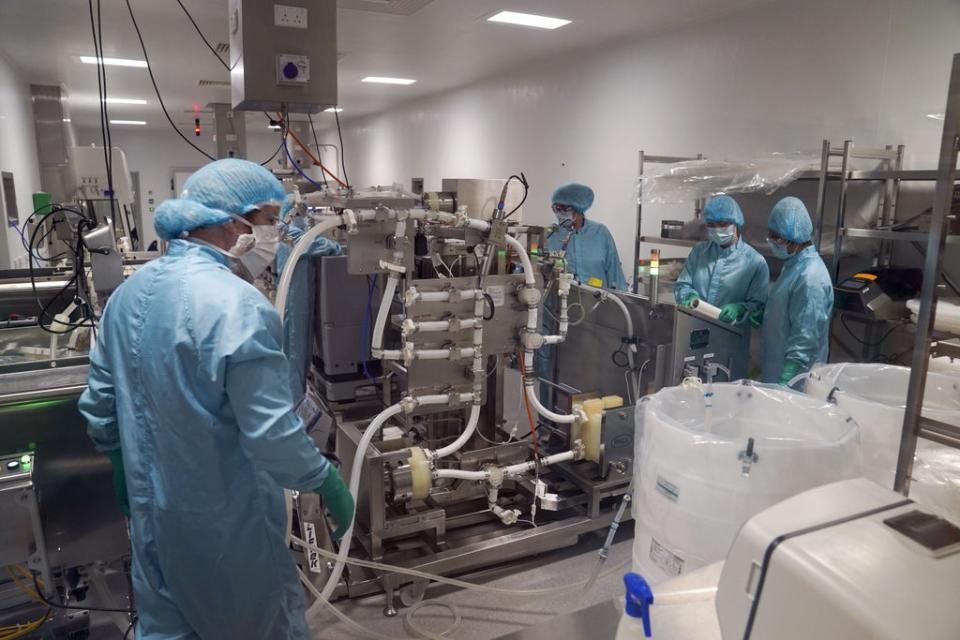Supply chain disruption stunts growth for manufacturers, figures suggest

The UK’s manufacturing sector continued to grow last month but staff shortages and supply chain disruption hit the industry, according to new data.
The closely-followed IHS Markit / CIPS Purchasing Managers Index (PMI) recorded a score of 57.8 in October, compared with 57.1 in September. Anything above 50 is seen as a sector in growth.
It was the first time the index had risen in five months, boosted by improved growth in new orders and employment, alongside steeper rises in stocks of purchases.
But the speed of growth was the slowest pace for eight months as bosses reported shortages continue to hold the sector back.
Strained global supply chains are disrupting production schedules, while staff shortages and declining intakes of new export work are also stymieing the upturn
Rob Dobson, IHS Markit
Exports fell for the second consecutive month with overseas customers cancelling or postponing orders due to longer lead times caused by port delays and freight capacity issues.
But the domestic market saw new orders rise as customers felt more confident with the economy rebounding following the easing of lockdown restrictions.
Some customers also said they were planning ahead to avoid supply chain delays and future inflation pressures, with prices rising and the Government warning inflation could hit 4% on average for the following year.
UK manufacturers remain optimistic, the survey found, with 62% expecting their level of output to increase over the coming year.
But the overall degree of positivity dropped to an eight-month low.
Jobs shortages continue to hit the sector, however, this has started to improve, with companies filling more roles.
The ability to fill jobs was cited as the reason the amount of work businesses in manufacturing could take on had risen.
But certain jobs remain harder to recruit for and the number of casual workers rose at its third-fastest pace on record.
Rob Dobson, Director at IHS Markit, said: “Strained global supply chains are disrupting production schedules, while staff shortages and declining intakes of new export work are also stymieing the upturn.
“This low growth environment is occurring in tandem with a severe upshot in inflationary pressures, with manufacturers reporting both a near-record increase in input costs and record rise in selling prices.”
Duncan Brock, Group Director at the Chartered Institute of Procurement & Supply (CIPS) added: “A slowdown in manufacturing output growth to an eight-month low is a strong indication of how the effects of staff shortages and the delivery of raw materials are continuing to impact the manufacturing sector even though overall productivity was maintained.
“This modest expansion was buoyed up by domestic demand as new order levels improved. However, pipelines of export work slipped back as customers in the EU and beyond became tired of waiting for their undelivered goods and resorted to cancellations.
“With Brexit adding to the slowdown, the issue here is not one of supply, as goods and materials are being produced, but that logistics challenges have become a nightmare for some companies.”
Read More
Christmas shoppers warned about post-Brexit charges on orders from EU

 Yahoo Finance
Yahoo Finance 